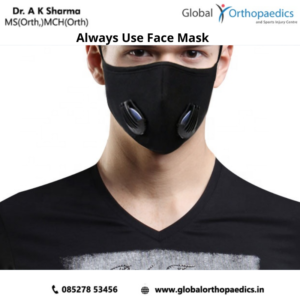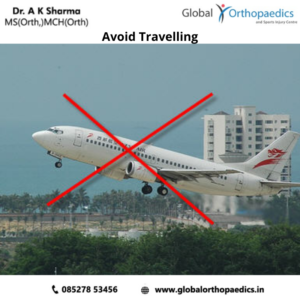Complications and Preventions
Complications
Although most people with COVID-19 have mild to moderate symptoms, this disease has the ability to cause severe medical complications and that can lead to death. These symptoms are visible in many people nowadays. Older adults or people with already suffering from existing chronic medical conditions are at greater risk of getting attacked by COVID-19.
Complications can include:
- Pneumonia and trouble breathing
- Organ failure in several organs
- Heart problems

- Blood clots
- Acute kidney injury
- Additional viral and bacterial infections
Prevention
Although there is no such vaccine introduced so far to prevent the risk of COVID-19, you can always look for taking steps to reduce the risk of infection. WHO and CDC recommend following these precautions for avoiding COVID-19:
- Avoid large events and mass gatherings.

- Avoid close contact (within about 6 feet, or 2 meters) with anyone who is at sick or having symptoms.
- Stay home as much as possible and maintain distance from others (within about 6 feet, or 2 meters) if COVID-19 is spreading in your community, especially if you have a higher risk of getting ill. Keep in mind that it is quite possible, some people may have COVID-19 and spread it to others, even if they don’t have symptoms or don’t know they have COVID-19.
- Wash your hands frequently with soap and water for at least 20 seconds or use an alcohol-based hand sanitizer that must contain at least 70% alcohol.

- Cover your face with a cloth face-covering in public spaces, such as the grocery store, where it’s difficult to avoid close contact with others, especially if you’re in an area with ongoing community spread. Only use nonmedical cloth masks — surgical masks and N95 respirators should be reserved for health care providers.

- Cover your mouth and nose with your elbow or a tissue when you cough or sneeze. Throw away the used tissue.
- Avoid touching your eyes, nose, and mouth.
- Avoid sharing dishes, glasses, bedding, and other household items if you’re sick.
- Clean and disinfect high-touch surfaces, such as doorknobs, light switches, electronics, and counters, daily.
- Stay home from work, school, and public areas if you’re sick unless you’re going to get medical care. Avoid public transportation, taxis, and ride-sharing if you’re sick.
- If you have a chronic medical condition and may have a higher risk of serious illness, check with your doctor about other ways to protect yourself.
Travel
If you’re planning to travel, first check the CDC and WHO websites for updates and advice. Also, look for any health advisories that may be in a place where you plan to travel. You may also want to talk with your doctor if you have health conditions that make you more susceptible to respiratory infections and complications.

Talk to your doctor online
You can also talk with your doctor if you have some signs and symptoms of COVID-19 or your health condition that make you more susceptible to respiratory infections and complications.
If you have any queries and doubts regarding these signs and symptoms of COVID-19, don’t hesitate to consult with me online over on Practo@ https://prac.to/dr-a-k-sharma-orthopedist-dir
We’re here to offer guidance and provide support, in whatever way we can!
Stay Safe! Stay Healthy!!


